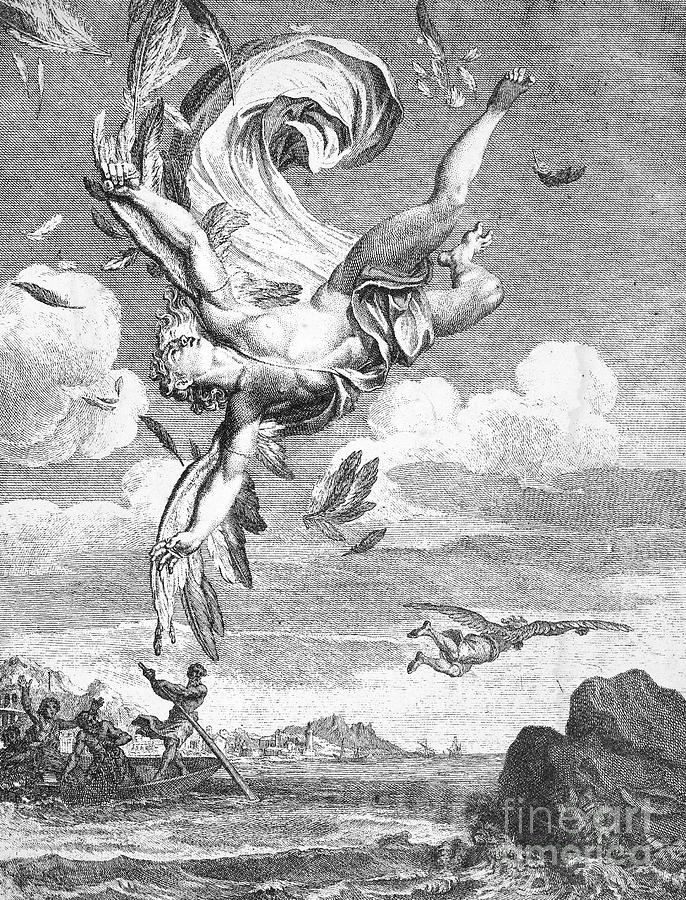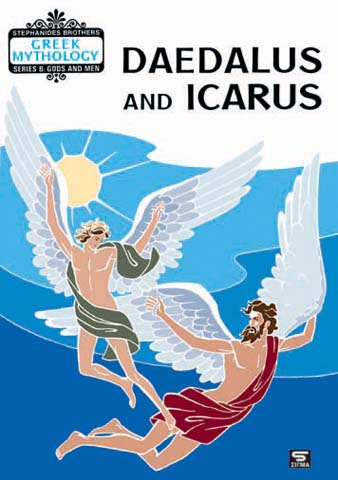
Our fathers, thrust into a competitive and work-centered world, never made the time to guide us in the transition from boyhood to manhood. The growth of our culture during that period made us anonymous, and the symbols of power continue to confuse and frighten us. Power is often confusing for boys of the baby boom generation.

Myths produce a response in us relevant to our own understanding of our lives. This story of a clever father and his willful sons attracts the 20 th century audience. Examining this myth in the light of the psychic experience of our adolescent years can illuminate how we internalize power in our lives as men.ĭespite its small place in the vast repertoire of Greek Mythology, the story of Icarus is well known today. The myth of Icarus and his father, Daedalus, teaches by its tragedy. Myths reflect subconscious truth power can be a dangerous and potentially fatal commodity for a boy as he transitions from boyhood to manhood. It teaches us about power in our relationship with our fathers. The myth of Icarus is especially relevant to boys of the baby boom (children born after World War II and up until the Vietnam era). Icarus had soared towards the sun, his wax melted and he fell to his death. He peered down at the ocean and saw a small cluster of feathers floating on the water. Daedalus looked around in flight and could not find his son.

Drunk with his newfound power, he soared higher in the sky, ignoring his father's warning. Also, like many adolescents, Icarus moved rapidly from ungainliness to false prowess. He found flight awkward at first, but learned quickly and soon flew with the attributes of adolescence-his physical strength made up for his lack of coordination and balance. Like any adolescent boy, Icarus struggled with parental advice. Icarus took off with all intentions of following his father's sage advice. If he flew too low, his wings would get wet in the ocean if he flew too high, the sun would melt the wax and the wings would disintegrate. Just before their flight, Daedalus warned his son to be careful. In theory, the wings would allow Daedalus and Icarus to fly above the labyrinth and off the island to freedom. Ever the inventor, Daedalus built wings of feathers and wax to escape. Because he was his father's son, Icarus faced the same fate. Sometime after building it, Daedalus fell into disfavor with the king of Crete and was condemned to live the rest of his life inside the labyrinth. Even Daedalus could not find a way out of his maze.

He was the son of Daedalus, an accomplished inventor, who produced an ingenious labyrinth on the island of Cnossus for Minos, the king of Crete. Icarus was a minor character in Greek Mythology, famous for not surviving the transition from boyhood to manhood.


 0 kommentar(er)
0 kommentar(er)
